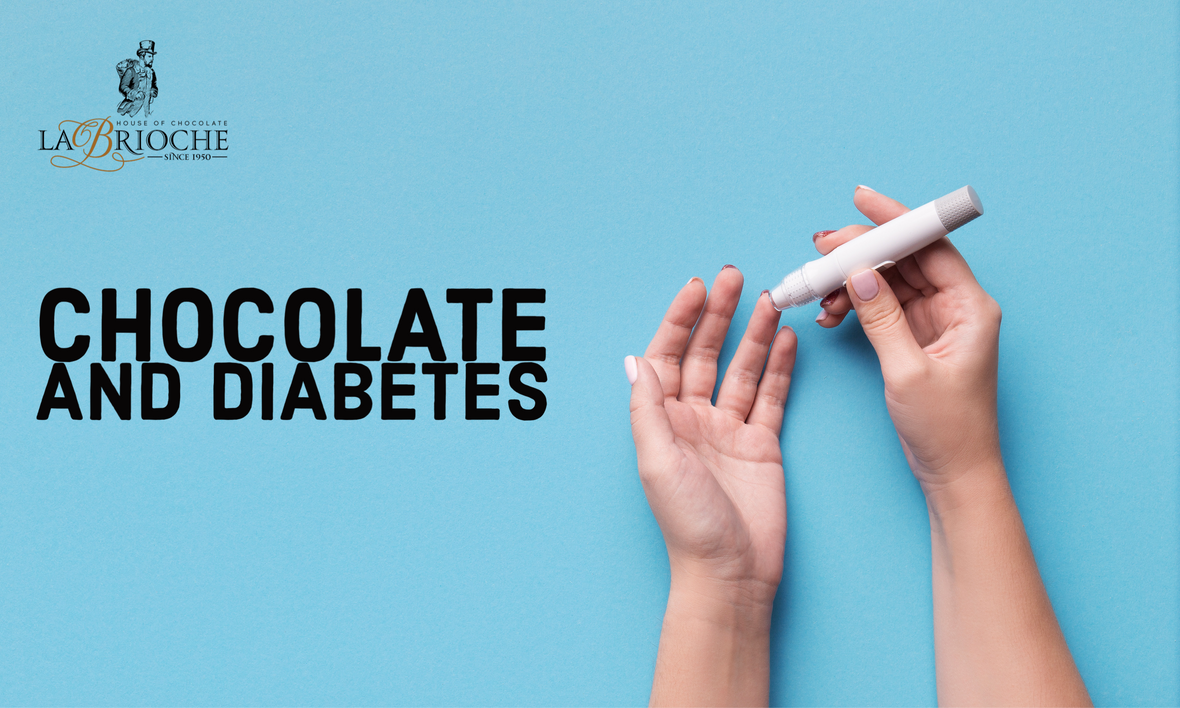
Chocolate And Diabetes
Omar Adnan Jabri
The Relationship Between Chocolate and Diabetes: Exploring the Effects
Introduction:
Diabetes is a chronic metabolic disorder that affects millions of people worldwide. Managing diabetes often involves careful consideration of dietary choices and their impact on blood sugar levels. Chocolate, a beloved treat enjoyed by many, has often been associated with concerns related to its potential effects on diabetes. In this article, we will delve into the relationship between chocolate and diabetes, examining the impact it may have on blood sugar control, insulin sensitivity, and overall health.
Understanding Diabetes:
Before we explore the effects of chocolate on diabetes, let’s briefly understand the condition. Diabetes is characterized by high blood sugar levels resulting from impaired insulin function. Insulin, a hormone produced by the pancreas, helps regulate glucose (sugar) levels in the bloodstream. People with diabetes either do not produce enough insulin (Type 1 diabetes) or are unable to effectively use the insulin they produce (Type 2 diabetes).
Chocolate and Blood Sugar Levels:
One primary concern for individuals with diabetes is the potential impact of chocolate on blood sugar levels. Chocolate typically contains sugar and carbohydrates, which can increase blood glucose levels. However, the type and quantity of chocolate consumed, along with individual factors, can influence the extent of this effect.
Dark Chocolate and Diabetes:
Dark chocolate, with its higher cocoa content and lower sugar content, may have potential benefits for individuals with diabetes. Research suggests that consuming moderate amounts of dark chocolate (typically containing at least 70% cocoa) may have a minimal impact on blood sugar levels. This is because dark chocolate contains flavonoids, plant compounds with antioxidant properties that can potentially improve insulin sensitivity.
Milk Chocolate and Diabetes:
In contrast to dark chocolate, milk chocolate often contains higher amounts of sugar and fewer flavonoids. Regular consumption of milk chocolate can lead to rapid spikes in blood sugar levels, making it less suitable for those with diabetes. However, occasional indulgence in small portions may not have a significant impact on blood sugar control.
The Role of Portion Control:
When considering the impact of chocolate on diabetes, portion control is crucial. Even dark chocolate, which has potential benefits, should be consumed in moderation. Overindulgence in any type of chocolate can lead to excessive calorie intake, weight gain, and increased risk of insulin resistance.
Other Factors to Consider:
While the effects of chocolate on blood sugar control are important, it is also essential to consider other factors that affect diabetes management. These include an individual’s overall diet, exercise routine, medication usage, and personal health profile. Consulting with a healthcare professional or registered dietitian is highly recommended to develop a personalized approach to diabetes management.
Benefits of Chocolate Beyond Blood Sugar Control:
While the impact of chocolate on blood sugar levels is a significant concern, it’s worth noting that chocolate, particularly dark chocolate, can offer additional potential health benefits. Dark chocolate’s high cocoa content provides antioxidants that may help reduce inflammation, improve heart health, and support cognitive function. However, these potential benefits should not overshadow the importance of maintaining stable blood sugar levels for individuals with diabetes.
Conclusion:
The relationship between chocolate and diabetes is complex, with varying effects depending on the type, quantity, and individual factors. Dark chocolate, with its higher cocoa content, may have some potential benefits for individuals with diabetes when consumed in moderation. However, it is crucial to consider overall diet, portion control, and other lifestyle factors when managing diabetes. As with any dietary consideration, consulting with a healthcare professional is essential for personalized advice and guidance. Remember, maintaining stable blood sugar levels remains a priority for individuals with diabetes, and any dietary choices should align with that goal.
Introduction:
Diabetes is a chronic metabolic disorder that affects millions of people worldwide. Managing diabetes often involves careful consideration of dietary choices and their impact on blood sugar levels. Chocolate, a beloved treat enjoyed by many, has often been associated with concerns related to its potential effects on diabetes. In this article, we will delve into the relationship between chocolate and diabetes, examining the impact it may have on blood sugar control, insulin sensitivity, and overall health.
Understanding Diabetes:
Before we explore the effects of chocolate on diabetes, let’s briefly understand the condition. Diabetes is characterized by high blood sugar levels resulting from impaired insulin function. Insulin, a hormone produced by the pancreas, helps regulate glucose (sugar) levels in the bloodstream. People with diabetes either do not produce enough insulin (Type 1 diabetes) or are unable to effectively use the insulin they produce (Type 2 diabetes).
Chocolate and Blood Sugar Levels:
One primary concern for individuals with diabetes is the potential impact of chocolate on blood sugar levels. Chocolate typically contains sugar and carbohydrates, which can increase blood glucose levels. However, the type and quantity of chocolate consumed, along with individual factors, can influence the extent of this effect.
Dark Chocolate and Diabetes:
Dark chocolate, with its higher cocoa content and lower sugar content, may have potential benefits for individuals with diabetes. Research suggests that consuming moderate amounts of dark chocolate (typically containing at least 70% cocoa) may have a minimal impact on blood sugar levels. This is because dark chocolate contains flavonoids, plant compounds with antioxidant properties that can potentially improve insulin sensitivity.
Milk Chocolate and Diabetes:
In contrast to dark chocolate, milk chocolate often contains higher amounts of sugar and fewer flavonoids. Regular consumption of milk chocolate can lead to rapid spikes in blood sugar levels, making it less suitable for those with diabetes. However, occasional indulgence in small portions may not have a significant impact on blood sugar control.
The Role of Portion Control:
When considering the impact of chocolate on diabetes, portion control is crucial. Even dark chocolate, which has potential benefits, should be consumed in moderation. Overindulgence in any type of chocolate can lead to excessive calorie intake, weight gain, and increased risk of insulin resistance.
Other Factors to Consider:
While the effects of chocolate on blood sugar control are important, it is also essential to consider other factors that affect diabetes management. These include an individual’s overall diet, exercise routine, medication usage, and personal health profile. Consulting with a healthcare professional or registered dietitian is highly recommended to develop a personalized approach to diabetes management.
Benefits of Chocolate Beyond Blood Sugar Control:
While the impact of chocolate on blood sugar levels is a significant concern, it’s worth noting that chocolate, particularly dark chocolate, can offer additional potential health benefits. Dark chocolate’s high cocoa content provides antioxidants that may help reduce inflammation, improve heart health, and support cognitive function. However, these potential benefits should not overshadow the importance of maintaining stable blood sugar levels for individuals with diabetes.
Conclusion:
The relationship between chocolate and diabetes is complex, with varying effects depending on the type, quantity, and individual factors. Dark chocolate, with its higher cocoa content, may have some potential benefits for individuals with diabetes when consumed in moderation. However, it is crucial to consider overall diet, portion control, and other lifestyle factors when managing diabetes. As with any dietary consideration, consulting with a healthcare professional is essential for personalized advice and guidance. Remember, maintaining stable blood sugar levels remains a priority for individuals with diabetes, and any dietary choices should align with that goal.



